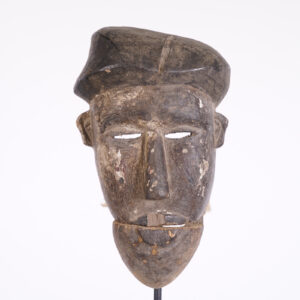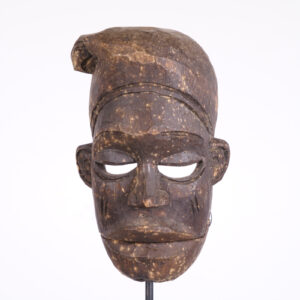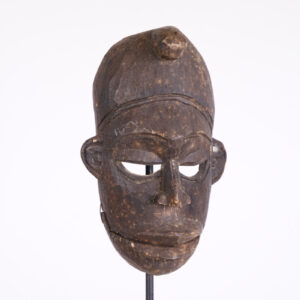“The Ibibio and the Anang people number around 2,000,000 and live in an area between the Delta and the Cross River. Their main resource is farming maize and iguame. They live in villages led by a chief elected from the most hounourable heads of important families and Ibibio and Anag social life is regulated by three secret societies which incorporate masks into their annual ceremonies. The most important of these societies is the Ekpo, which is responsible for the cult of the ancestors, who are in turn responsible for the welfare of the tribe. In Ibibio ceremonies, two main types of mask appear. The first, known as Mfon, has an articulated jaw and represents a ‘beautiful’ spirit who has attained eternal bliss. The second mask, called Idiok, is thought to represent a hell-dwelling spirit and is carved with a typical emaciated face, possibly alluding to ill-health.”
Source:
Baquart, Jean-Baptiste. The Tribal Arts of Africa. New York: Thames and Hudson Inc. 1998. Print.
Art from this Tribe
-
Sale!

Intriguing Ibibio Mask with Articulated Jaw 9.75″ – Nigeria – African Tribal Art
Original price was: $300.00.$120.00Current price is: $120.00.View More -
Sale!

Ibibio Mask with Articulated Jaw 9.25″ – Nigeria – African Tribal Art
Original price was: $250.00.$100.00Current price is: $100.00.View More -
Sale!

Ibibio Mask with Movable Jaw 9″ – Nigeria – African Tribal Art
Original price was: $250.00.$100.00Current price is: $100.00.View More

